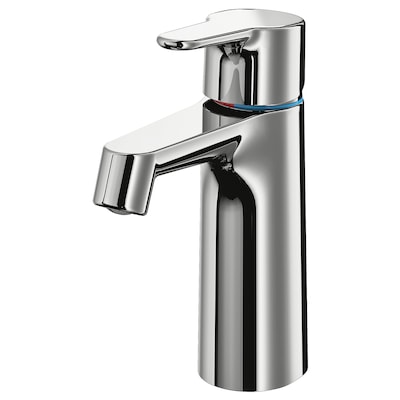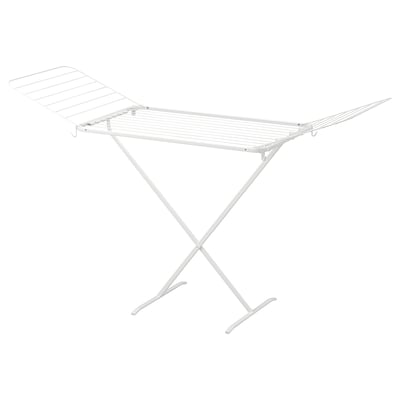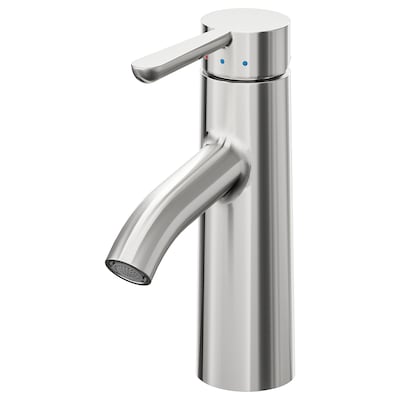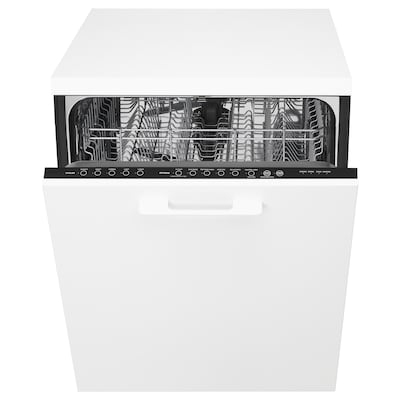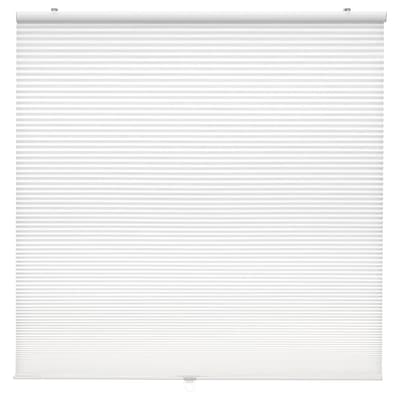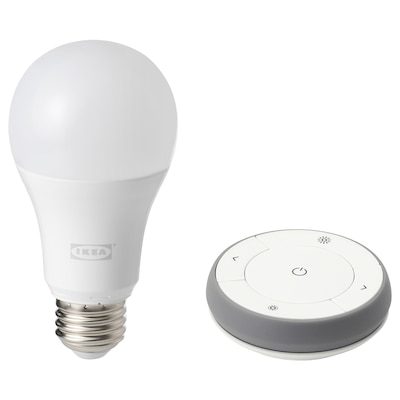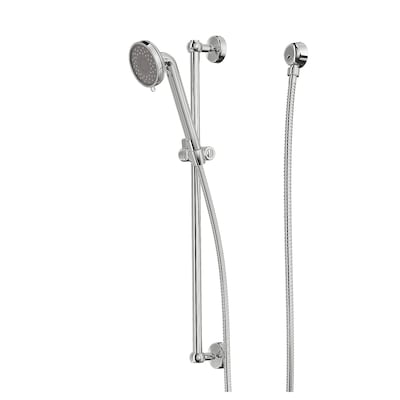How to save energy, water and money at home
Some households waste several liters of fresh water each day – and let energy fly out the window. Don’t flush your money down the drain, too! Changing your habits in small ways can make a world of difference by preserving resources, as well as cut your utility bills.
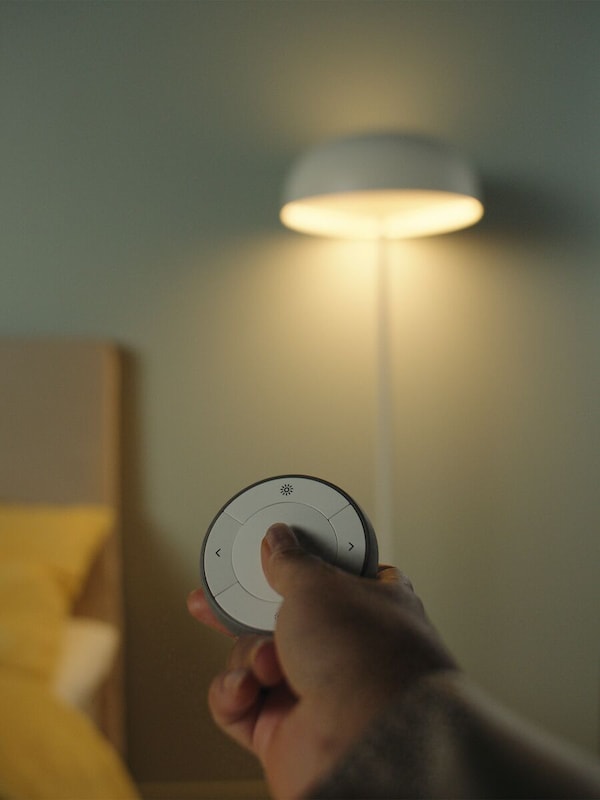
Saving energy is saving money
You can use less energy – and cut your bills – with a fresh look at your lighting, heating and home appliances.
LED light bulbs, for example, use up to 85% less energy and last 20 times longer than incandescent bulbs. You save even more if you turn them off as you leave the room (very simple with the TRÅDFRI remote control). To easily lower your heating costs, you can use insulating blinds or thicker curtains when the temperature drops.
What about that power-hungry tumble dryer? When you can drip-dry on a rack instead, your clothes suffer less wear-and-tear than they normally would.
Of course, electrical appliances are modern-day essentials but the newer models, rated AA+ or higher, are very energy efficient. And, if you want to think big, alternative energy like home solar can help to reduce your electricity payments, as well as your carbon emissions.
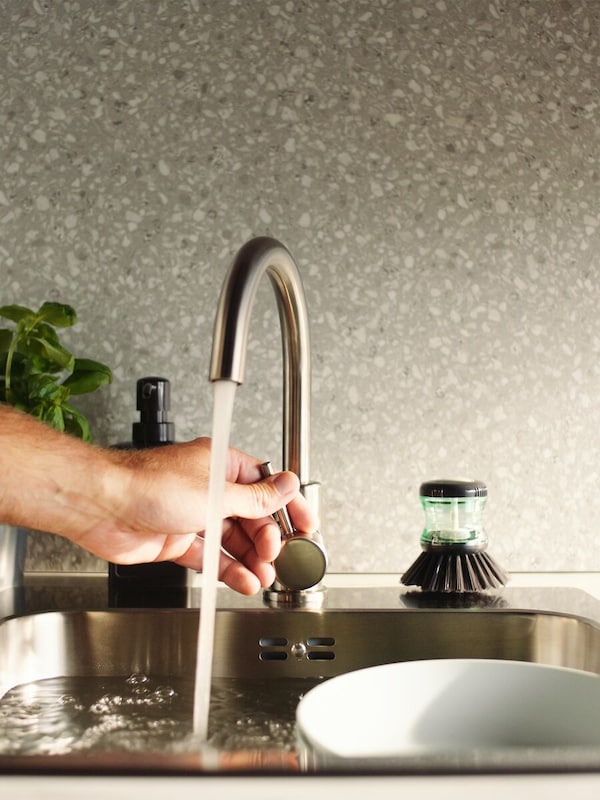
How to use less water – without even trying
Of all the water in the world, less than 3% is fresh. So, the careful use of it makes sense – financially and environmentally. Happily, some modern products can do the water-saving for you.
For example, a pressure-compensating aerator is standard across the whole IKEA range of faucets and showers. This reduces the amount of water coming out – by up to 50% in some bathroom faucets – but keeps the flow at the level you want. So, you use less energy to heat it, even more when the faucet has a cold-start function.
Today’s dishwashers and washing machines usually have an ‘eco mode’ option that’s highly water- and energy-efficient. In fact, a full dishwasher on this setting will use less water than if you were to do it all by hand.
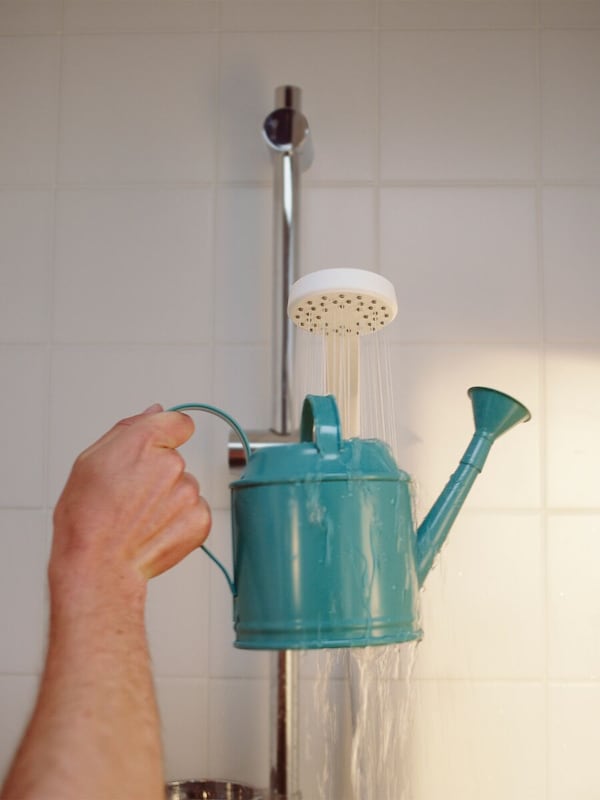
Save some for the plants, too
A typical home can save many liters of water each day, simply by turning off the faucet while you brush your teeth. Or by washing your salad in a bowl instead of under running water. You can then give this water to your houseplants. And while you wait for the shower to warm up, you can collect the water for the same purpose.
Fresh water may be an expensive resource – but rainwater is free to collect for use on your garden. (If you wait until sunset, you lose less water through evaporation.)
In warmer weather, you can chill your tap water in the fridge so that you don’t have to run the faucet to cool down first. Of course, not everyone in the world has drinkable water on tap. So, perhaps those of us that do ought to value every last drop.
